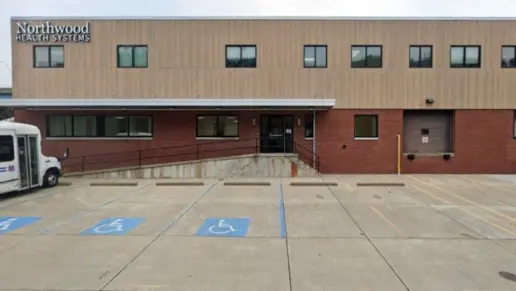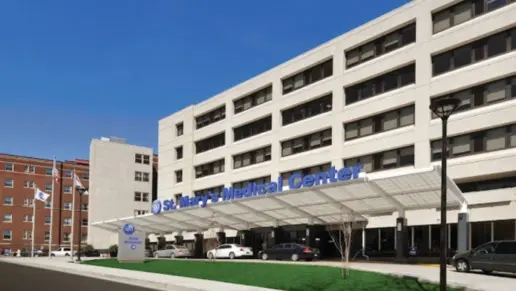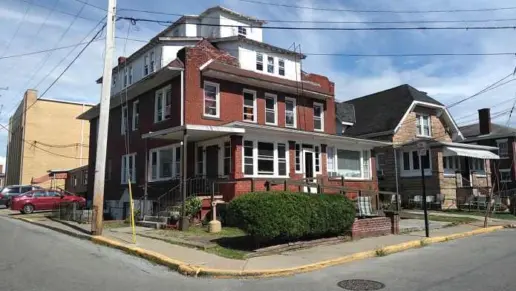When you want to call to make an appointment, it is almost impossible for them to answer you, they are people who do not care about their work and are only there for the money they can earn.
About Wheeling Comprehensive Treatment
Wheeling Comprehensive Treatment Center is an outpatient treatment center for adults aged 18 and up. The center specifically treats opioid use disorder with a medication assisted treatment program (MAT). They offer 24/7 appointment scheduling and same day admission. If you’re wondering about payment, they accept most commercial insurance. They also take Medicare and Medicaid. If you’re a veteran or in the military, they also take TRICARE and VA health plans.
This treatment center offers several types of prescription medications for MAT beyond the standard methadone treatment. They also offer Suboxone, naltrexone, and buprenorphine. At your initial assessment, the doctor will do a thorough assessment and discuss the medication options available to you based on your substance use.
Unlike many MAT facilities, they offer individual therapy in addition to the typical group therapy. Individual therapy gives you a safe, confidential environment to discuss the challenges that led you to use opioids. You and your therapist can get to the root of your substance use whether it’s trauma, social expectations or a co occurring mental health disorder such as depression, anxiety, bipolar disorder, or other mental health challenge. Once you understand what drives your substance use, you can begin to make the necessary lifestyle changes to help you avoid the things that cause you to use.
In group therapy, you’ll meet with a small group of people also getting treatment at the center. Group therapy is led by a staff member who will teach you about addiction and offer valuable information about other issues such as relapse prevention. You’ll give and get support from other members who are also experiencing a journey to sobriety. The center’s philosophy is to treat everyone as valuable and deserving of respect. They want all their clients to feel safe expressing their feelings and participating actively in their recovery.
Latest Reviews
Rehab Score
Accepted Insurance
Other Forms of Payment
Medicaid is a state based program that helps lower-income individuals and families pay for healthcare. Medicaid covers addiction treatment so those enrolled can use their coverage to pay for rehab. When a program accepts Medicaid the client often pays very little or nothing out of their own pocket.
Private insurance refers to any kind of healthcare coverage that isn't from the state or federal government. This includes individual and family plans offered by an employer or purchased from the Insurance Marketplace. Every plan will have different requirements and out of pocket costs so be sure to get the full details before you start treatment.
Self-pay involves paying for treatment out of your own pocket. You can use savings or credit, get a personal loan, or receive help from family and friends to fund your treatment. If you don't have insurance or your insurance plan doesn't cover a specific program, self-pay can help ensure you still get the care you need.
Medicare is a federal program that provides health insurance for those 65 and older. It also serves people under 65 with chronic and disabling health challenges. To use Medicare for addiction treatment you need to find a program that accepts Medicare and is in network with your plan. Out of pocket costs and preauthorization requirements vary, so always check with your provider.
Addiction Treatments
Levels of Care
Treatments
Many of those suffering from addiction also suffer from mental or emotional illnesses like schizophrenia, bipolar disorder, depression, or anxiety disorders. Rehab and other substance abuse facilities treating those with a dual diagnosis or co-occurring disorder administer psychiatric treatment to address the person's mental health issue in addition to drug and alcohol rehabilitation.
Opioid rehabs specialize in supporting those recovering from opioid addiction. They treat those suffering from addiction to illegal opioids like heroin, as well as prescription drugs like oxycodone. These centers typically combine both physical as well as mental and emotional support to help stop addiction. Physical support often includes medical detox and subsequent medical support (including medication), and mental support includes in-depth therapy to address the underlying causes of addiction.
Substance rehabs focus on helping individuals recover from substance abuse, including alcohol and drug addiction (both illegal and prescription drugs). They often include the opportunity to engage in both individual as well as group therapy.
Programs


Clinical Services
Research clearly demonstrates that recovery is far more successful and sustainable when loved ones like family members participate in rehab and substance abuse treatment. Genetic factors may be at play when it comes to drug and alcohol addiction, as well as mental health issues. Family dynamics often play a critical role in addiction triggers, and if properly educated, family members can be a strong source of support when it comes to rehabilitation.
Group therapy is any therapeutic work that happens in a group (not one-on-one). There are a number of different group therapy modalities, including support groups, experiential therapy, psycho-education, and more. Group therapy involves treatment as well as processing interaction between group members.
In individual therapy, a patient meets one-on-one with a trained psychologist or counselor. Therapy is a pivotal part of effective substance abuse treatment, as it often covers root causes of addiction, including challenges faced by the patient in their social, family, and work/school life.
Amenities
-
Private Setting
Accreditations

The National Association of Addiction Treatment Providers (NAATP) is a professional association that represents organizations in the field of addiction services. Founded in 1978, NAATP's mission is to advance addiction services and ensure that high-quality addiction treatment is available and accessible.
NAATP Member: Yes
Member ID: 1658

The Substance Abuse and Mental Health Services Administration (SAMHSA) is a branch of the U.S. Department of Health and Human Services. Established in 1992 by congress, SAMHSA's mission is to reduce the impact of substance abuse and mental illness on American's communities.
SAMHSA Listed: Yes
Contact Information
40 Orrs Lane
Triadelphia, WV 26059





